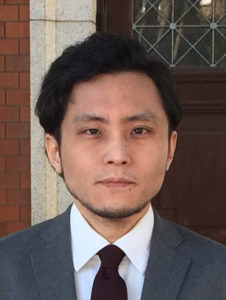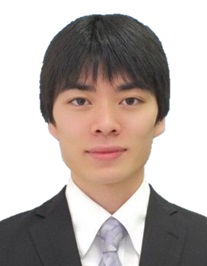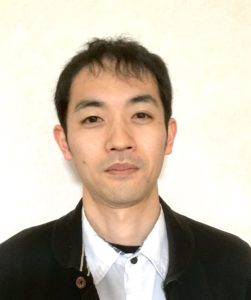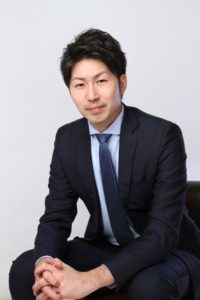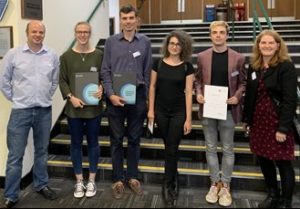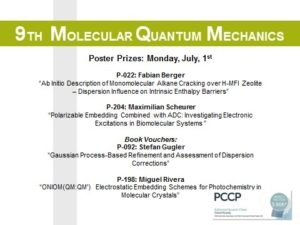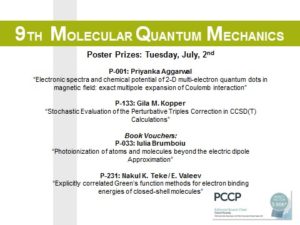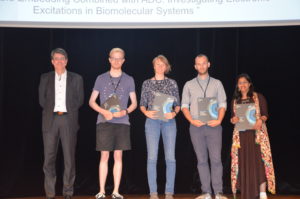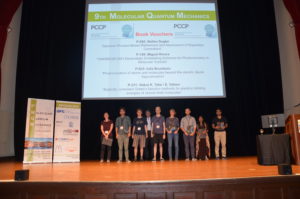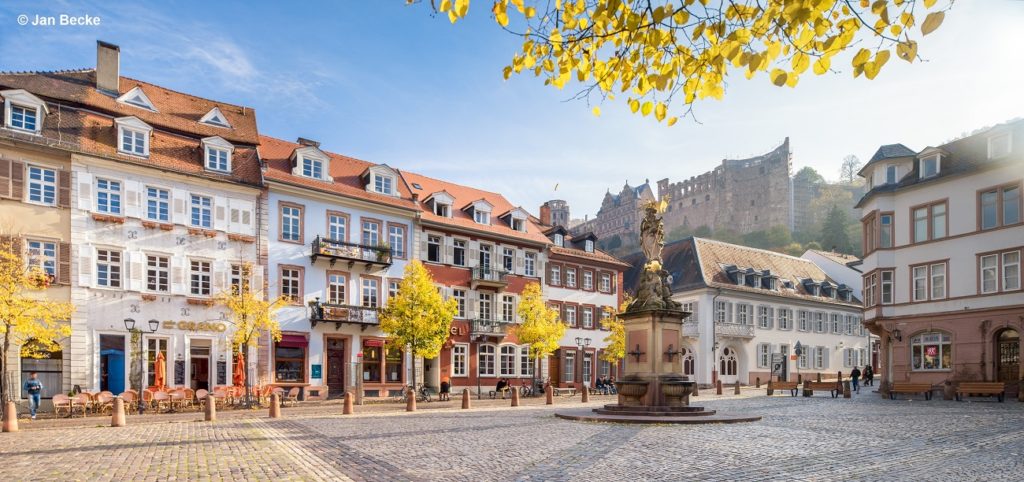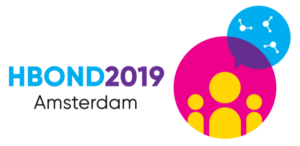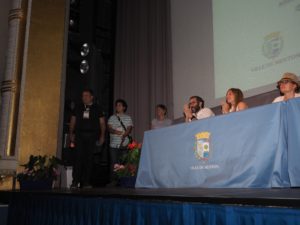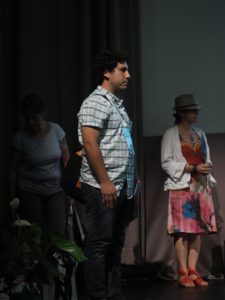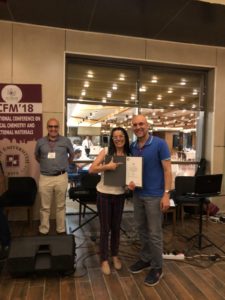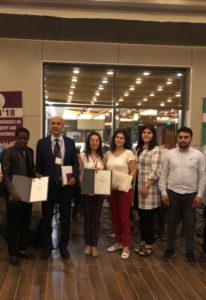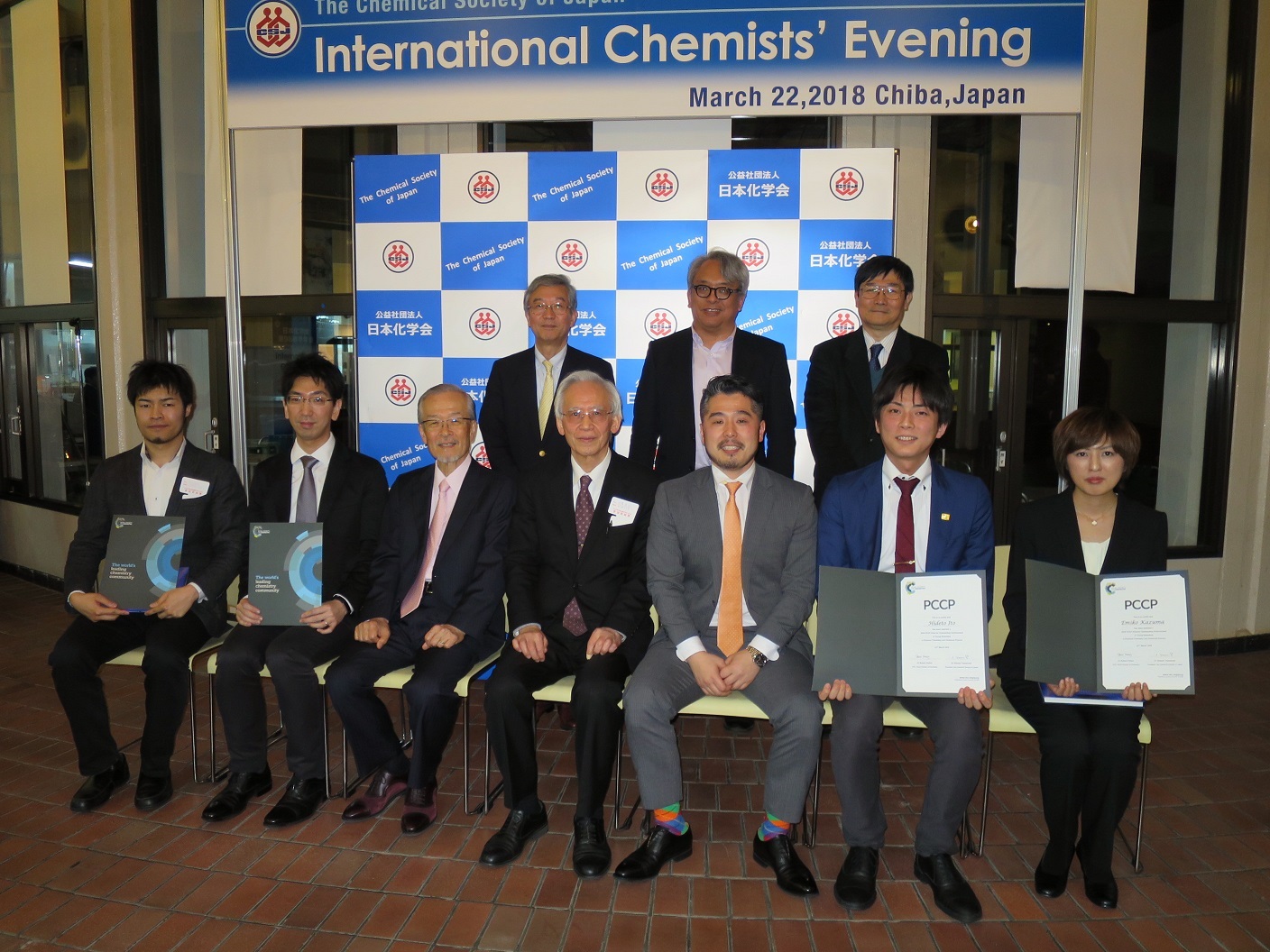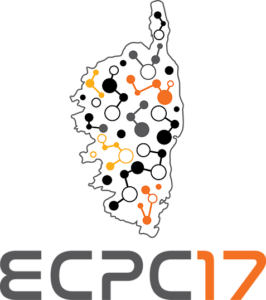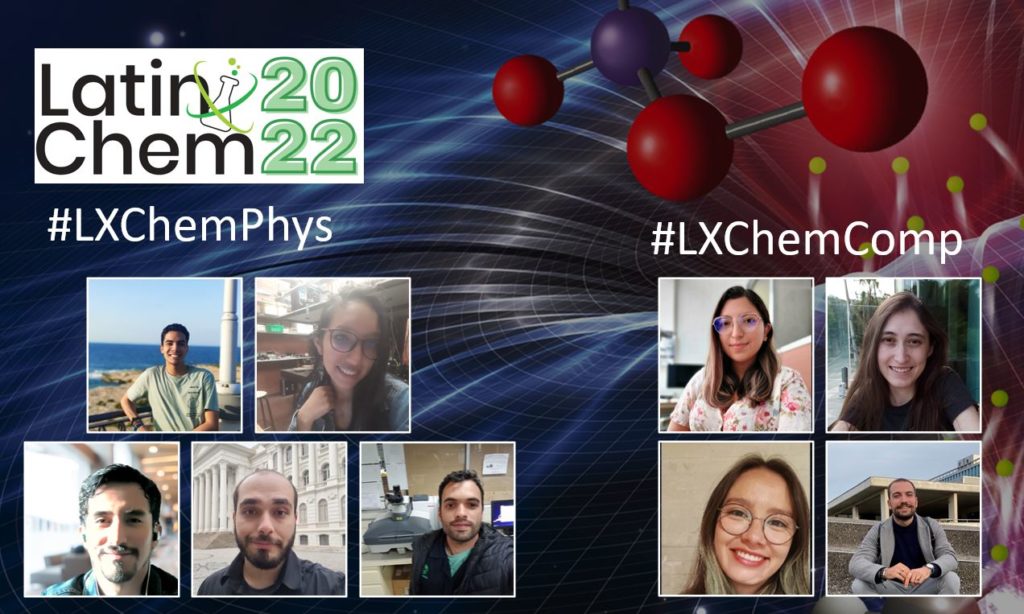
On November 28th, 2022, the #LatinXChem22 conference took place, the third event organized by @LatinXChem. In this virtual forum, the community of Latin American chemists located all around the world shared and discussed their research results and advances via Twitter.
950 posters were presented in Spanish, Portuguese, or English in eight different categories! In this blog, we are delighted to announce the winners in #LXChemPhys categories sponsored by PCCP and in #LXChemComp sponsored by PCCP and Digital Discovery.
Congratulations to all the poster prize winners and to everyone who took part! All the poster contributions were fantastic!
#LXChemComp
#LXChemComp gathered scientists working in many different areas of computational chemistry. This year, five different sub-categories were evaluated: Simulations (Dynamics, Montecarlo, quantum dynamics, etc), Methods (software developments), Computational chemistry, Excited states and Machine learning
Best poster prize: Planar tetracoordinate oxygen atoms
|

Gabriela Castillo-Toraya
@GabyrCT
|
|
Gabriela is a Ph.D. student in the Applied Physics Department at Centro de Investigacion y de Estudios Avanzados located in Merida, Yucatán, Mexico. She graduated with honours from the Universidad Autónoma de Yucatán with a Bachelor of Engineering Physics, and in 2020, she earned a Master of Science in physical chemistry from Cinvestav Mérida under the supervision of Prof. Gabriel Merino. Currently, she continues working with Prof. Merino and she is part of the Theoretical and Computational Chemistry group that he leads. Her main research interest is the prediction of new chemical entities, especially the prediction of molecules with planar tetracoordinate atoms. |
Best poster prize: Estructura y dinámica dependientes del espín: cúmulos de oxígeno molecular
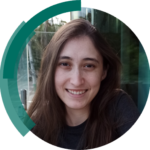
Laura Beatriz Castro Gómez
@beatrizcastrogm
|
|
Laura Beatriz was born in Mexico in 1998. She is currently studying a MSc at the Autonomous University of the State of Morelos (UAEM), Mexico, under the guidance of Ramón Hernández Lamoneda (CIQ-UAEM). She received her bachelor’s degree in Molecular Design and Nanochemisty (UAEM) in 2021. She attended high school at the School of Laboratory Technicians. During that time, she participated three times in the National Chemistry Olympiad in Mexico, obtaining one gold and two bronze medals. Since 2016 she has been participating as an instructor in the Chemistry Olympiads. Her main research interest is the theoretical study of molecular oxygen clusters. In particular, she focuses on calculating the intermolecular potential energy using a pairwise interaction, considering contributions from the three interaction potentials of the dimer. |
Second-Best poster prize: Energy Transfer in Light-harvesting macromolecules

Valeria Bonilla González
@Val_BonillaGo
|
|
Valeria was born in Bogotá (Colombia) in 1998. She went to a Spanish international school in Bogotá (Centro Cultural y Educativo Español Reyes Católicos), where she discovered her passion for chemistry and earned a scholarship for her undergraduate studies in chemistry at Universidad Nacional de Colombia. During this time, she was introduced to the computational chemistry world by Dr. Johan F. Galindo, studying energy transfer processes in light-harvesting dendrimers. She also worked as a chemistry tutor for the university, and as a personal high school teacher, where she developed a particular fondness for teaching. |
Honourable mention: Reactivity of a model of B3P3-Doped Nanographene with up to three CO2 molecules
|

Maxime Ferrer
@MaximeFERRER7
|
|
Maxime has always been interested and motivated by understanding the world surrounding him. Science seems then the perfect field to explore. After obtaining a degree in general chemistry in Toulouse (France), he decided to explore the world of computational chemistry. During his master’s in Madrid, he developed a certain interest for non-covalent interactions. Those interactions, generally weak, but fundamental to explain a lot of chemical and biological processes, are complex. They really piqued his curiosity, and so, he started a Ph.D. in the Instituto de Química Médica (CSIC) with Pr. Ibon Alkorta. Nowadays, Maxime’s research is mainly based on the study of Frustrated Lewis Pairs and their ability to capture carbon dioxide molecules. |
#LXChemPhys
#LXChemPhys received contributions from physical chemiststs working in: Structure, Reactivity, and Mechanism, Kinetics, Photophysics and Photochemistry, Optical spectroscopies, and Microscopies, Femtochemistry, Surface Chemistry, Electrochemistry and Catalysis.
Best poster prize: X-Ray & UV Photoinduced Fragmentation of Prebiotic Molecules in Interstellar Clouds: Ethanolamine

Jhoan Londoño-Restrepo
@JhoanLondoo4 |
|
Jhoan was born in Medellín, Colombia. From a very early age, he remembers being fascinated and curious about astronomy and the origin of life. While in high school, he joined a study group at the University of Antioquia. He then decided to study astronomy at the same university and while attending the lectures planned, he had the opportunity to hear about astrochemistry, the science that studies matter and its transformations in the universe. He joined Dr Heidy-Quitian and her group on experimental astrochemistry a year ago where he is currently working as a BSc student. |
Best poster prize: Evaluation of dyes diffusion of different charges in TiO2 mesoporous thin films

Iskra Zambrano
@IskraZambrano |
|
Iskra was born in Quininde, Ecuador. She graduated in Physics from Yachay Tech University. During her undergraduate studies, her thesis work focused on the area of molecular spintronics, specifically on the study of DNA polarization by electron transfer. She is currently doing a Ph.D. with a scholarship at National University of San Martín (UNSAM), in Argentina. Her doctoral research is focused on understanding the transport, partitioning and chemical reactivity processes in confined environments of mesoporous nanosystems, combining theoretical, modeling and experimental tools. This research is carried out at the Institute of Nanosystems (INS) of UNSAM and the Institute of Physical Chemistry of Materials, Environment and Energy (INQUIMAE) of the Buenos Aires University (UBA). |
Second-Best poster prize: Dispersibility study of GO-bio carbon obtained from the thermal decomposition of Phragmites australis
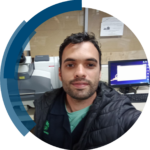
Raul Pareja-Rodriguez
@RalParejaRodrg1 |
|
Raul graduated in Chemistry (2016) from the Central University of Las Villas, Santa Clara, Cuba. Since graduating, he taught different subjects in the discipline of Physical Chemistry until he started his Master of Science in Physical Chemistry at Cinvestav-Unidad Mérida. During this master’s, he worked on the study of obtaining graphene oxide-type carbonaceous materials from the thermal decomposition of biomass and graduated in 2020. He is currently a Ph.D candidate in Physical Chemistry at Cinvestav, investigating carbonaceous materials obtained from the thermal decomposition of biomass with energy and environmental applications. |
Honourable mention: Theoretically designed lead-free halide double perovskites: effective mass calculations

Jean Castillo
@Jean_Castillo27 |
|
Jean Castillo has a bachelor’s degree in Nanotechnology from the Centro de Nanociencias y Nanotecnología (CNyN) of the Universidad Nacional Autónoma de México (UNAM) and a master’s in Materials Science and Engineering from the famaLab of the Universidad Autónoma Metropolitana-Unidad Azcapotzalco (UAM-A). He is currently working on the theoretical design of lead-free halide double perovskites for high-efficiency photovoltaic applications using DFT calculations |
Honourable mention: Production of Pickering particles from Microcrystalline Cellulose for stabilization of water-in-water emulsions

Bernardo M. Régnier
@BerMauad
|
|
Bernardo was born in Curitiba, Brazil in 1999. He completed his degree in chemistry in 2022 at the Federal University of Paraná (UFPR), where he worked in the Biopolymers and Colloids group (BIOPOL) and catalysis and kinetics group (GCC). His research focused on cellulose nanoparticles, using different functionalizations, aiming at applications in stabilization of water-in-water emulsions and degradation of pesticides and chemical weapons based on organophosphates. He is currently preparing to enter his master’s degree program in the field of physical chemistry. |
PCCP is a high-impact, international journal publishing cutting-edge original work in physical chemistry, chemical physics, and biophysical chemistry. For more information and to keep up to date with latest journal news, follow our blog, Twitter, newsletter and e-TOC alerts.





















